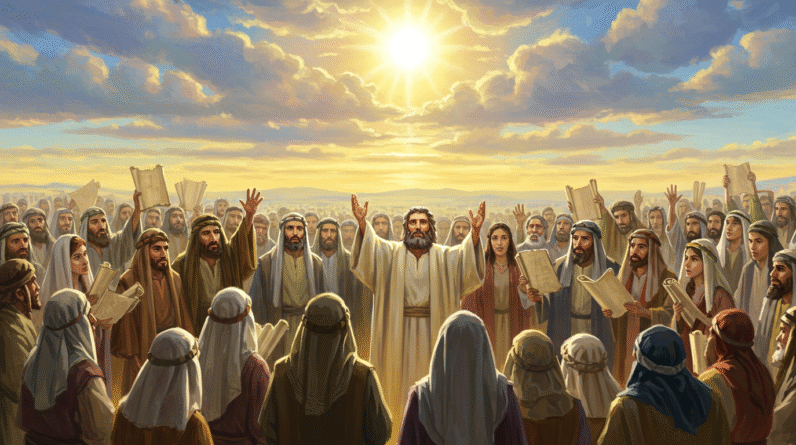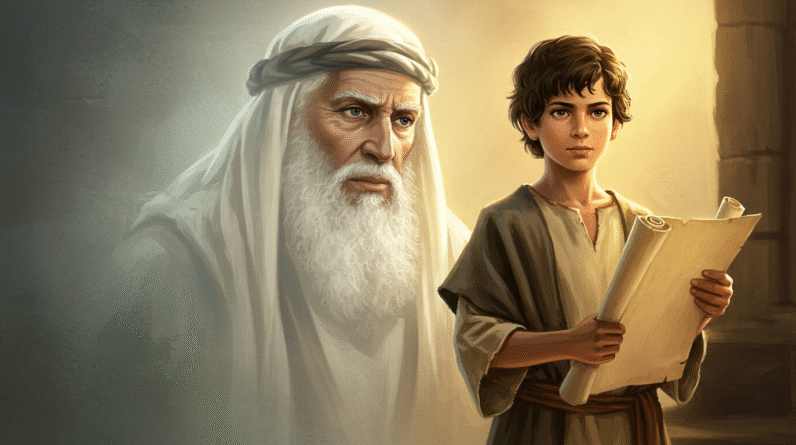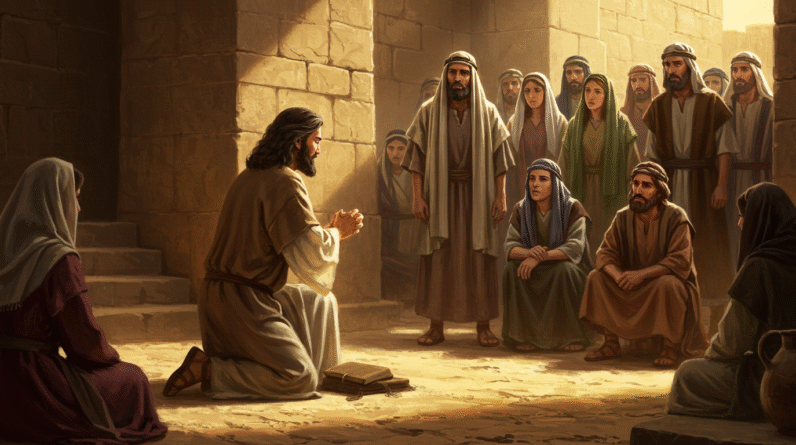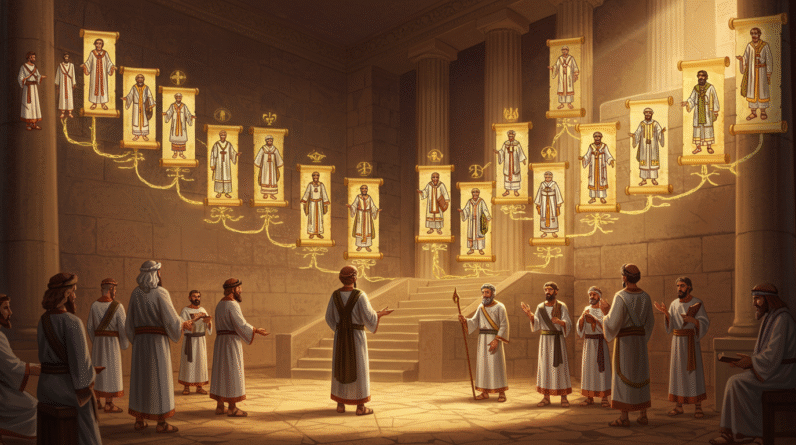Discover Aaron’s pivotal role as Moses’ brother in guiding the Israelites from slavery in the Exodus. Unwrap lessons on faith, leadership, and human resilience.
Aaron’s Role: Guiding a People in Exodus
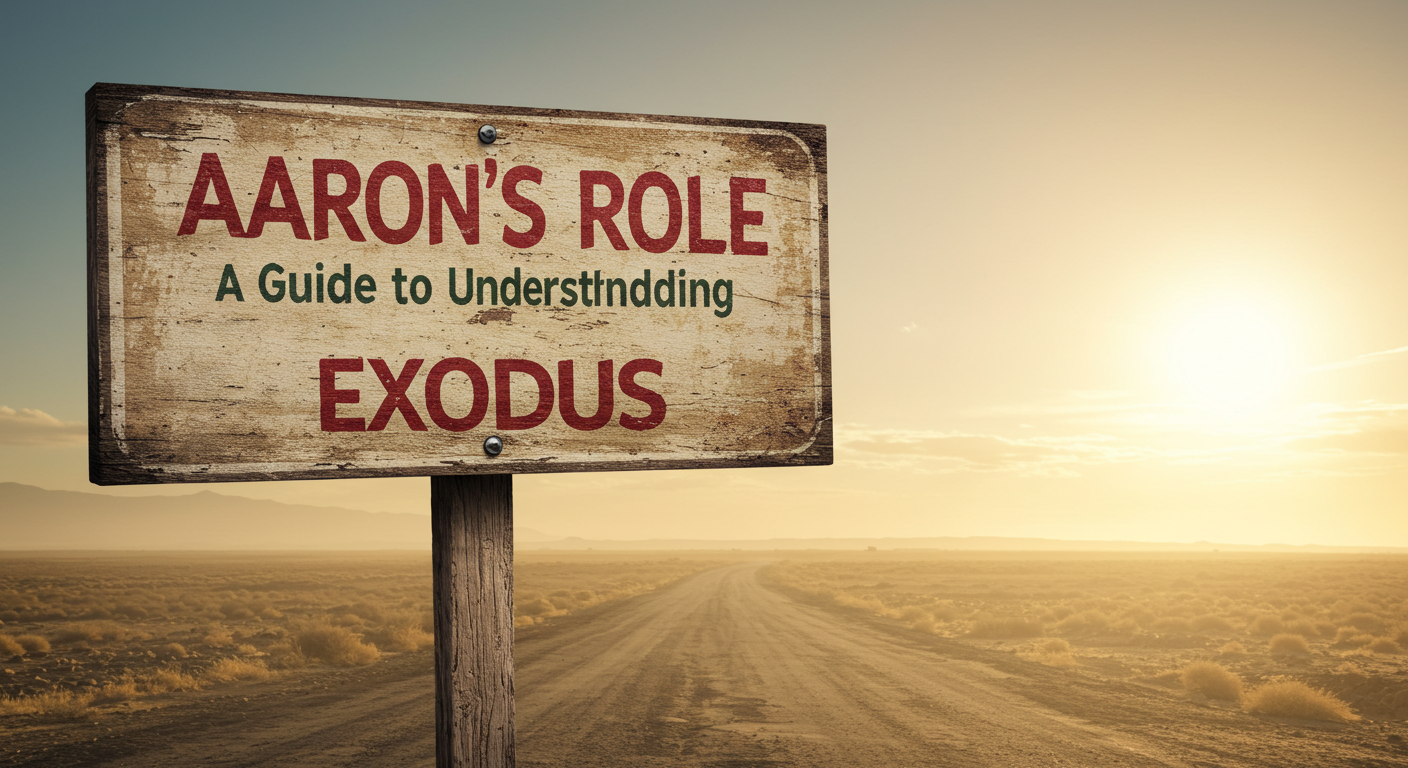
Introduction
Imagine being the person who stands right next to a pivotal figure during a critical moment in history. Such a role is filled with responsibility, challenges, and moments of grace. This was the experience of Aaron, the brother of Moses, whose life and contributions are woven intricately into the Exodus narrative. Known as a high priest, mediator, and leader, Aaron played a significant part in guiding the Israelites from slavery toward freedom. His story offers a rich tapestry of lessons, reflecting the triumphs and trials of faith and leadership. Join us as we embark on a journey to explore Aaron’s role, dig deeper into his contributions, and uncover valuable lessons that resonate within our modern lives.
Who Was Aaron?
To understand Aaron’s significance, it’s important to start with his origins. Aaron hailed from the tribe of Levi, one of the twelve tribes of Israel. He was born in Egypt during the Israelites’ long sojourn, a period marked by their enslavement. As Moses’ elder brother, Aaron is often introduced in the Bible as a spokesperson and companion to Moses. In Exodus 28:1, we learn that Aaron was chosen by God to be the high priest—a position of great honor and responsibility. This role established him as the primary intermediary between God and the people of Israel, placing him at the heart of their spiritual life and worship.
Key Moments in Aaron’s Life
Aaron’s life is punctuated by many significant events that showcase his central role in the Exodus journey. One of the most notable moments was when God appointed him to speak on behalf of Moses to Pharaoh, due to Moses’ speech impediment. This alliance is captured in Exodus 4:14-16, where Aaron steps in as an eloquent voice, articulating the divine demand for the Israelites’ freedom.
Perhaps one of Aaron’s most challenging moments came with the incident of the Golden Calf, as described in Exodus 32. While Moses was on Mount Sinai receiving the Ten Commandments, the people grew impatient and pressed Aaron to create an idol to worship. Aaron succumbed to their demands, resulting in a severe test of leadership and faith.
Despite such trials, Aaron also had moments of great spiritual achievement. As high priest, Aaron played a key role in the consecration of the Tabernacle and the establishment of rituals, as outlined in Leviticus 8-9, marking critical steps towards the Israelites forging a communal and divine identity.
Lessons We Can Learn from Aaron
Aaron’s life offers a wealth of lessons for modern Christians. His story is one of devoted service and collaboration; he knew his role was crucial for the liberation and spiritual guidance of his people. However, Aaron’s story also warns us of the pitfalls of yielding to pressure and neglecting core principles, as seen in the Golden Calf episode. It is a testament to human vulnerability and serves as a cautionary tale about the consequences of straying from one’s beliefs.
Moreover, Aaron’s life is a powerful reminder that leadership often involves partnership and collaboration. His support for Moses underscores the importance of teamwork, complementing one another’s strengths and weaknesses to achieve God’s purposes. In our own lives, Aaron’s example encourages us to embrace our roles, contribute where we can, and support those around us with humility and grace.
Biblical References & Context
Aaron is a prominent figure throughout the Old Testament, mentioned in various passages that illuminate his role and influence:
- Exodus 4:14-16: Highlights Aaron’s selection as Moses’ spokesman.
- Exodus 28:1: Discusses God’s choice of Aaron as high priest.
- Exodus 32: Details the Golden Calf incident and Aaron’s involvement.
- Leviticus 8-9: Describes Aaron’s consecration and service in the Tabernacle.
Each of these verses situates Aaron within the broader narrative of Exodus, providing context for his contributions to the Israelites’ journey toward freedom and establishing a religious community.
Aaron in the Bigger Picture
Aaron’s role was much more than that of a mere assistant to Moses. In the realm of the Old Testament, Aaron fits into God’s plan as a bridge between the divine and the earthly. He not only facilitated the Israelites’ departure from Egypt but also helped establish crucial religious practices and structures. His priesthood is later reflected in the New Testament, where Jesus is depicted as the ultimate high priest—a theme discussed in letters such as Hebrews (see Hebrews 5:1-4).
In understanding Aaron, we also comprehend the evolution of priesthood, covenant, and community. Aaron’s life established a legacy that carries forward into both Christian and Jewish traditions, highlighting the enduring nature of God’s covenant with His people.
Final Thoughts
In reflecting on Aaron’s story, we are reminded of the profound and sometimes complicated tapestry of faith, leadership, and human frailty. Aaron’s legacy as a high priest and leader is marked by both profound successes and serious missteps, allowing us to see the full dimension of leadership in a biblical context. His story encourages us to engage with our challenges faithfully, rely on collaboration, and embrace forgiveness.
Consider the impacts of Aaron’s decisions and the way they ripple through history, guiding us today in understanding effective leadership and spiritual service. As you delve into Aaron’s journey, ponder deeply on your own path. How might these lessons of faith, service, and resilience play out in your life?
Acknowledgment: All Bible verses referenced in this article were accessed via Bible Gateway (or Bible Hub).


